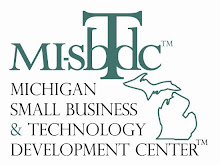 For contracting purposes, the federal government recognizes companies as minority-owned only if they have one of the following certifications:
For contracting purposes, the federal government recognizes companies as minority-owned only if they have one of the following certifications:8(a) Business Development Program http://www.sba.gov/8abd/
What are the basic requirements a concern must meet for the 8(a) BD program?
· Generally, a concern meets the basic requirements for admission to the 8(a) BD program if it is a small business which is unconditionally owned and controlled by one or more socially and economically disadvantaged individuals who are of good character and citizens of the United States, and which demonstrates potential for success.
What is socially disadvantaged?
· Members of designated groups. (1) There is a reputable presumption that the following individuals are socially disadvantage: Black Americans; Hispanic Americans; Native Americans (American Indians, Eskimos, Aleuts, or Native Hawaiians); Asian Pacific Americans (persons with origins from Burma, Thailand, Malaysia, Indonesia, Singapore, Brunei, Japan, China (including Hong Kong), Taiwan, Laos, Cambodia (Kampuchea), Vietnam, Korea, The Philippines, U.S. Trust Territory of the Pacific Islands (Republic of Palau), Republic of the Marshall Islands, Federated States of Micronesia, the Commonwealth of the Northern Mariana islands, Guam, Samoa, Macao, Fiji, Tonga, Kiribati, Tuvalu, or Nauru); Subcontinent Asian Americans (persons with origins from India, Pakistan, Bangladesh, Sri Lanka, Bhutan, the Maldives Islands or Nepal); and members of other groups designated from time to time by SBA according to procedures set forth at paragraph (d) of this section. Being born in a country does not, by itself, suffice to make the birth country and individual’s country of origin for purposes of being included within a designated group.
What is economically disadvantaged?
· Net worth. For initial 8(a) BD eligibility, the net worth of an individual claiming disadvantage must be less than $250,000. For continued 8(a) BD eligibility after admission to the program, net worth must be less than $750,000. In determining such net worth, SBA will exclude the ownership interest in the applicant or participant and the equity in the primary personal residence (except any portion of such equity which is attributable to excessive withdrawals from the applicant or participant). Exclusions for net worth purposes are not exclusions for asset valuation or access to capital and credit purposes.
Small Disadvantaged Business (SDB) http://www.sba.gov/sdb/
What are the basic requirements a concern must meet for the SDB program?
· Qualifications for the program are similar to those for the 8(a) Business Development Program. A small business must be at least 51% owned and controlled by a socially and economically disadvantaged individual or individuals.
· African Americans, Hispanic Americans, Asian Pacific Americans, Subcontinent Asian Americans, and Native Americans are presumed to quality. Other individuals can qualify if they show by a “preponderance of the evidence” that they are disadvantaged.
· All individuals must have a net worth of less than $750,000, excluding the equity of the business and primary residence. Successful applicants must also meet applicable size standards for small businesses in their industry.







